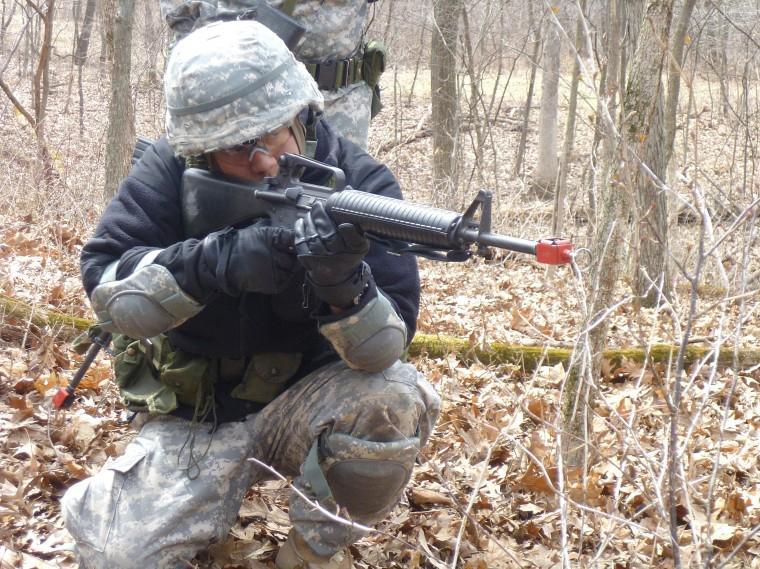ROTC competes in four-mile course
An ROTC member rehearses for a mission in Marseilles in March. The mission was just part of the spring field training exercises for the NIU ROTC.
October 21, 2011
Not many people can say they have dragged cement blocks, climbed over 12 foot high walls or carried a 35 pound backpack across six miles of rugged terrain.
Lt. Colonel David Dosier said the Huskie Battalion participates in local competitions like the Midwest Spartan Race and the Ranger Challenge because it improves cadets’ leadership and teamwork skills.
The Huskie Battalion is the army ROTC program at NIU. Students who stay in the program sign a contract during their junior or senior year that commits them to join the army or army reserves after graduating, Dosier said.
Dosier and Master Sgt. Antonitus Knight traveled to Marseilles with 11 ROTC cadets to compete in the Midwest Spartan Race on Oct. 15. The team completed many obstacles including climbing ropes, carrying buckets of gravel and army-crawling through mud beneath barbed wire.
Cadet Alex Noll said the hardest part of the four mile course was trudging through six inch deep mud. Noll said he lost his shoe three times during the obstacle course that the battalion completed in less than two hours.
“[Competitions like this] are good preparation for the army because in the military, you have to know how to adapt and overcome things,” Noll said. “Whenever you physically push your body, that prepares you for anything – especially the military.”
The Huskie Battalion will compete in the Ranger Challenge on Oct. 28 to 30 in Marseilles. NIU cadets will face off against 12 other ROTC programs in the region, Dosier said.
This is a military skills competition and not just an obstacle course, Dosier said. Some events over the weekend include a land navigation competition, combat patrol exam, weapons assembly and disassembly and an obstacle course.
Cadets complete the weekend competition by carrying a 35 pound backpack during a six mile “ruck march,” Dosier said.
“The Ranger Challenge is kind of like the varsity sport for ROTC,” Dosier said.
Knight said competitions like the Ranger Challenge are important for cadets’ training because it gives them the necessary skills to address challenges they might face in a war zone.
Many people assume that cadets join the ROTC program because they get a free education but only 15 percent of cadets are receiving a federal scholarship, Dosier said.
“Most cadets are doing this because they feel driven to serve our county and want to be a part of something bigger then themselves,” Dosier said.







